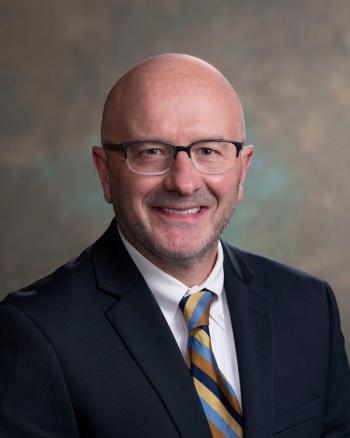
Physician Assistants Play Key Role in Access to Healthcare
By emphasizing a team-oriented approach to healthcare and using PAs, we increase access to care for our patients.
It is customary to reflect on the future in the beginning of a new year, and I'm not immune to trying to prognosticate about how the coming year will shake out.
I read a couple of predictions about the wants, needs and preferences of the patients that we serve, made by fellow Physicians Practice blogger James Doulgeris in his recent blog series on
He observed, and I agree, that accessibility of the provider, communication, and more personalized medicine are all very important issues in the overall "perceived" quality of care.
James got to the heart of the matter from the consumer's perspective, and physicians, PAs and other providers of direct patient care would be well served to understand how patients judge us in the coming era of the Affordable Care Act. He said the number one expectation of healthcare consumers is "access to care," and I couldn't agree with him more. This is the driver of nearly everything that matters in healthcare reform debates, and critically important to consumer satisfaction.
Insurance coverage, the supply of physicians and other direct providers of healthcare, and the misdistribution of specialists, among other factors, contribute significantly to access to care problems.
I connected with his writing because I know physician assistants that impact the delivery of healthcare in those key areas.
Medicine has evolved tremendously in the more than three decades I have practiced as a PA, and transitioned from an era of individual solo practice, to one of team and group practice.
Concerns regarding the supply of primary-care physicians in the 1960s led to the training and enabled legislation of new types of direct care providers, such as PAs. PAs were acculturated and trained in "team practice" in schools of medicine with their physician colleagues, and intuitively understood transitional trends in team medicine that became the norm in the healthcare system of the United States.
When I initially began practice, PAs were largely a family practice and general medicine phenomena. This has dramatically changed over the course of my career as PAs follow their physician colleagues into specialties. PAs in this day and age are deployed in almost every specialty of medicine, and every clinical setting.
By emphasizing a team-oriented approach to healthcare and using PAs, we increase access to care for our patients. PAs have a long and proud history of service to their patients as well as their physician colleagues, and represent one of the most flexible human resource of the healthcare system.
While not a replacement for physicians, PAs can be trained in half the time, at a lower cost, and deployed relatively quickly to areas of need in the healthcare system, providing many of the services traditionally delivered only by physicians.
Currently, there are more than 6,000 PAs matriculating from PA programs across the nation annually, and the profession will surpass 100,000 PAs in clinical practice in the next couple of years. This represents a vital resource to the United States healthcare system into the foreseeable future.
When it comes to improving accessibility of the provider, communication, personalized medicine, and access to care, we all need to continue to think outside of the bounds of history and tradition, and keep our eyes on the goal of quality, accessible health care. This requires that we use all the human resources at our disposal, and keep an open mind to new and innovative care delivery strategies.
Find out more about Stephen Hanson and our other
This blog was provided in partnership with the American Academy of Physician Assistants. For more information, visit
Newsletter
Optimize your practice with the Physicians Practice newsletter, offering management pearls, leadership tips, and business strategies tailored for practice administrators and physicians of any specialty.






